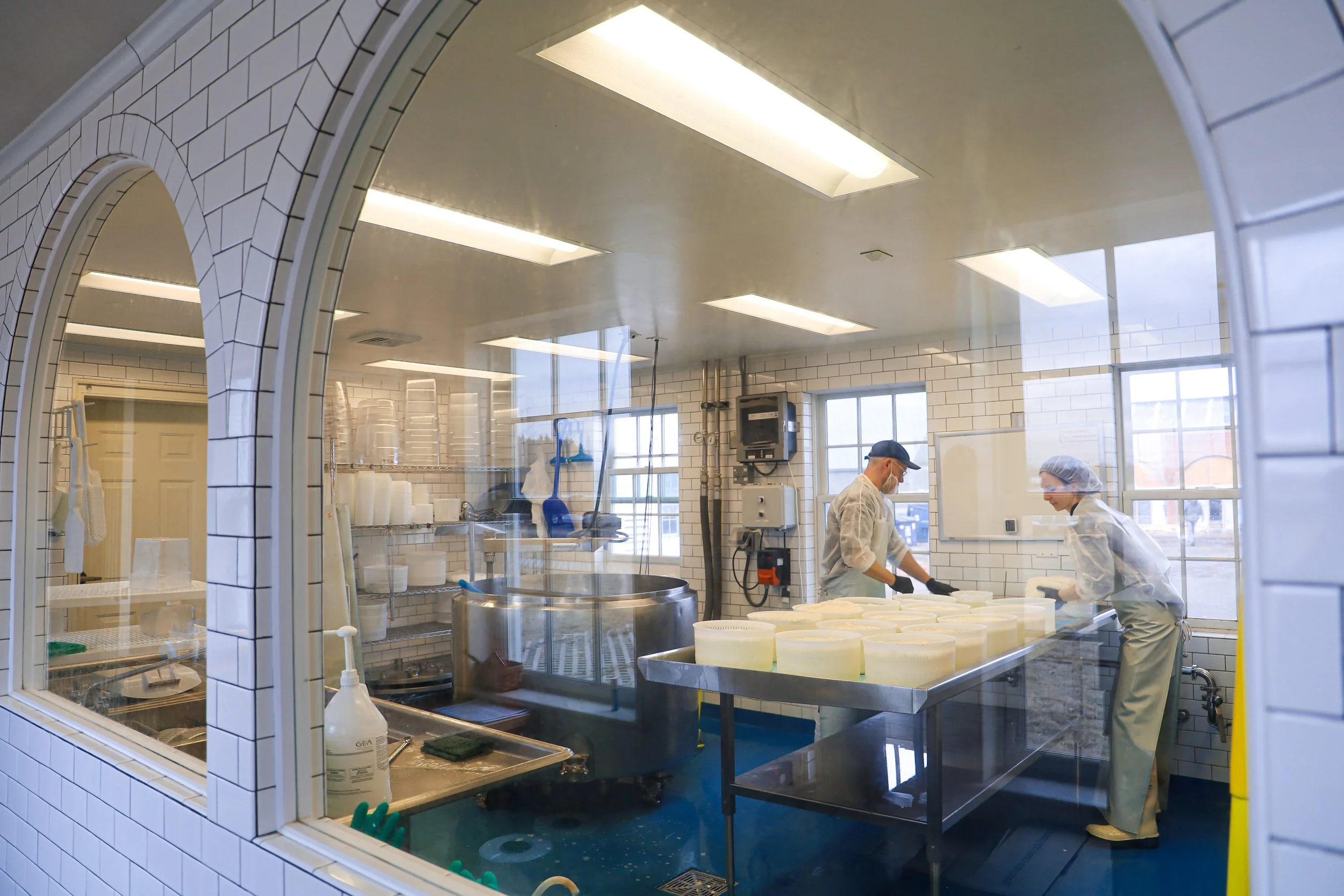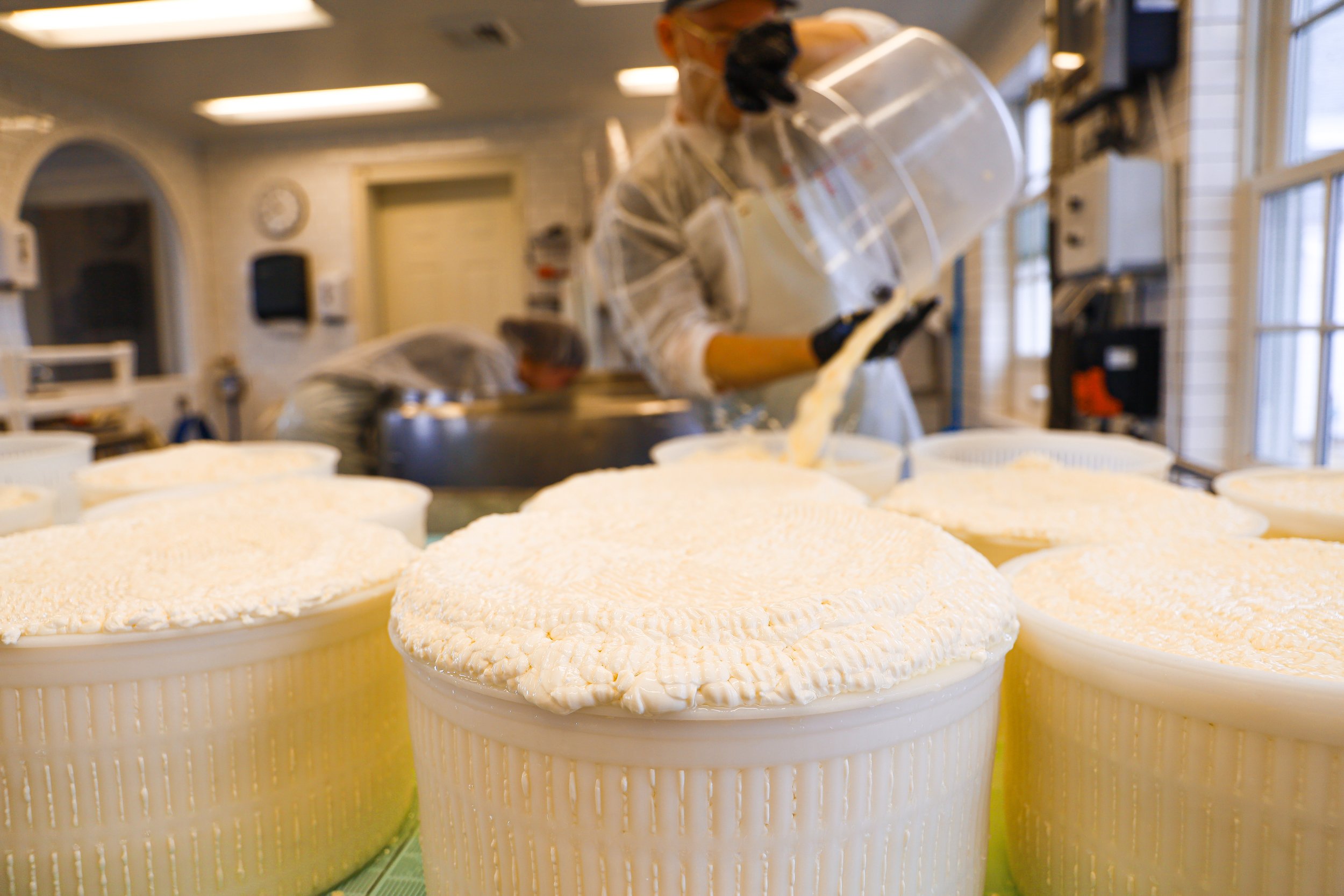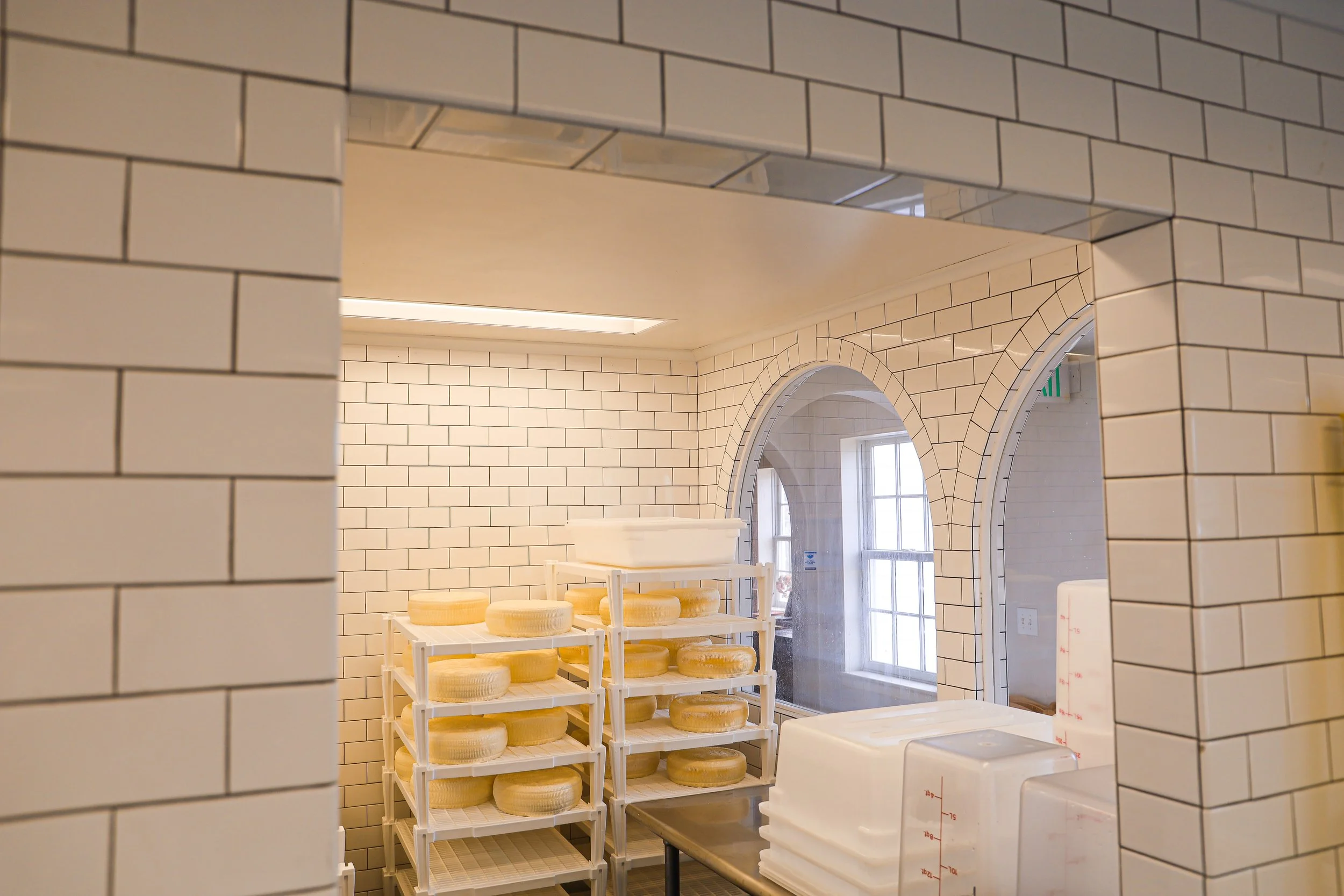Cheese is the culmination of all the extraordinary effort and attention that dairy farming demands. At Churchtown Dairy we are proud to produce award-winning cheeses representing the high quality and nature of our Hudson Valley raw milk.
Cheesemaking
Cheese is the culmination of all the extraordinary effort and attention that dairy farming demands. At Churchtown Dairy we are proud to produce award-winning cheeses representing the high quality and nature of our Hudson Valley raw milk. Working with our herd of Brown Swiss, Jersey, and Guernsey cows, we craft biodynamic cheeses that respects both the beauty and health of the living agricultural landscape and the animals and humans within it.
Cheese is a medium through which the milk can express itself, particularly when raw milk, with its natural microbial populations, is used. Every day that we work with the milk, we identify its strengths and qualities identify and collaborate with the farm team to optimize our raw milk for cheese production, in order to produce our diverse line of award winning cheeses.
All of our biodynamic, farmstead cheeses are made in our small but efficient creamery on-site at the farm; visitors are welcome to observe the process as it occurs in our white-tiled production space, viewable through large arched windows just down the hall from the farm store. Production happens 3-4 times a week, with both the raw and pasteurized cheeses being fabricated in our 200 gallon stainless steel vat. The whey from the cheesemaking process is a protein and nutrient-rich liquid which is used to feed our herd of pigs. After production, the young cheeses spend a few days in the creamery to be salted and dried in warmer temperatures, before being ready to be transported down to the cave.
The creamery is also used to educate visitors about cheese and the farm’s mission as a whole; for more information about cheese tastings, events and educational opportunities, including classes on home cheesemaking please visit our Events calendar.
The Churchtown cheese affinage (the french term for the cheese aging) process occurs underground, in a beautiful arched tunnel with brick walls whose design was Inspired by the traditional cheese and wine caves of Italy and France. Because it is underground, the temperature remains cool and stable year round, similar to a root cellar. The cave is outfitted with a state of the art chilling system, but this is used minimally as the natural temperature generally holds right around the optimal zone of 48-54º Fahrenheit, making it both a perfect home for the towers of cheeses, while minimizing energy consumption. Ideal humidity is in the 88-95% range, and here as well, the natural construction of the cave keeps conditions optimal, with the bare brick walls absorbing moisture and then releasing it slowly back into the cave.
Aging times for the cheeses vary — from our Fresh Cheese, which goes from production to sale in just three days, with no aging; to the Peggy and Coperthwaite, which will spend 2-3 weeks in the cave before being wrapped and brought up to the farm store; and then the Wendell, which ages a minimum of 60 days, but is at it's best when it has spent 4, 6, or even 12 months in the cave, being given the chance to slowly develop a depth of flavor and aroma that only comes with time, patience and thoughtful affinage.
The caves play host to a rich microbial ecosystem of its own, which contributes to the rind and flavor development of the cheeses as they age. Cultures are added to the cheeses to encourage certain characteristics, but with the raw milk Wendell in particular, we see these wild strains influencing and contributing to the final product in unique ways. We even see blue molds, nearly identical to those found in classic blue cheeses, springing up in the cave despite our never making blue cheese in the space! Cheesemakers work in the caves daily, spraying, brushing and flipping the cheeses, adjusting the frequency and intensity of the treatments depending on how the cheeses are developing.
Food safety is of the highest importance at Churchtown Dairy; for this reason, we maintain a rigorous sanitation program, including regular milk and cheese testing, and work with our state and federal inspectors to ensure the quality of our products. For more information about our food safety program please contact our Head Cheesemaker, matt@churchtowndairy.org.
The creamery is also used to educate visitors about cheese and the farm’s mission as a whole; for more information about cheese tastings, events and educational opportunities, including classes on home cheesemaking please visit our Events calendar.
To learn more about our cheeses please contact our Head Cheesemaker, Matt Spiegler, at matt@churchtowndairy.org.




